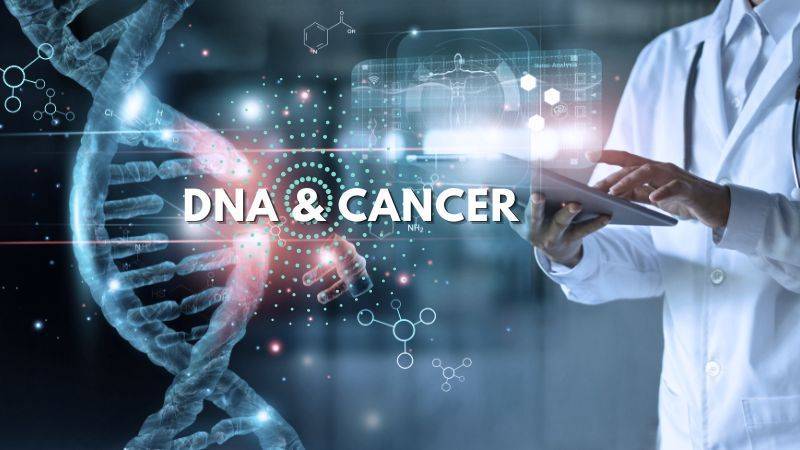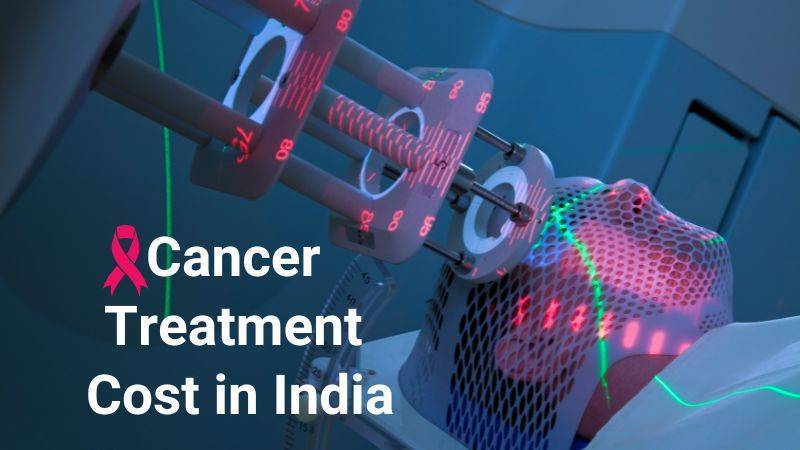Defective DNA repair mechanisms can play a significant role in the development and progression of cancer.
The DNA within our cells can undergo damage due to various factors, such as exposure to radiation, environmental toxins, and errors that occur during DNA replication.
However, our cells have sophisticated DNA repair systems that help maintain the integrity of the genetic material.
Let’s understand this cycle more precisely:
How DNA and Genes Shape Who You Are
Inside every cell, there’s a control center called the nucleus. It contains 23 pairs of chromosomes, which are long strands of DNA resembling twisted ladders.
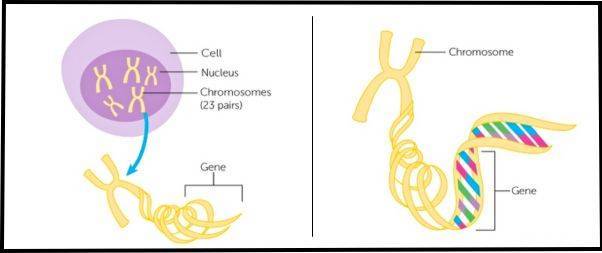
DNA, or deoxyribonucleic acid, carries important instructions for the cell.
Imagine having over 2 meters of DNA packed inside each cell! It’s tightly coiled up so it fits. DNA is like a code, made up of genes. Humans have around 25,000 genes in total.
You inherit half of your DNA from your mother and the other half from your father, which means you have two copies of every gene. These genes hold all the information that makes you unique, like determining your hair color, skin tone, and eye color. They also tell your cells:
- What type of cell to be
- How to behave
- When to grow and reproduce
- When to die
Certain genes control how much cells grow and divide, influencing their behavior in your body.
How Faulty Genes Contribute to Cancer
Genes can undergo changes called mutations when cells divide. These mutations can occur naturally during cell processes or due to external factors like tobacco smoke, radiation, certain substances in food, or environmental chemicals.
In some cases, individuals inherit faulty genes from their parents, which increases their risk of developing cancer.
Normally, cells have mechanisms to repair gene faults. When the damage is severe, cells may self-destruct or be eliminated by the immune system, protecting us from cancer.
However, mutations in critical genes can disrupt a cell’s ability to understand instructions properly. As a result, the cell starts multiplying uncontrollably, fails to repair itself effectively, and doesn’t undergo programmed cell death as it should. This unregulated cell growth can lead to the development of cancer.
There are four main types of genes involved in cell division, and most tumors exhibit defective copies of more than one of these gene types.
Further details about these four gene types can be explored below:
Power of Oncogenes: Genes that encourage the cell to multiply
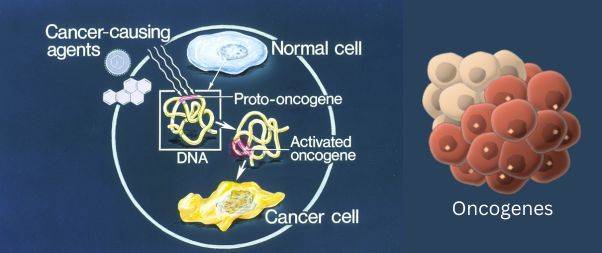
Oncogenes are genes that typically regulate cell multiplication and division, although in adults this process occurs less frequently.
Think of oncogenes as the accelerator pedal in a car. When these genes become activated, they accelerate the growth rate of a cell. However, if an oncogene becomes damaged, it’s like the accelerator pedal getting stuck in a pressed-down position.
The affected cell, along with its descendant cells, receives a permanent instruction to divide incessantly. Consequently, cancer begins to develop.
Tumour Suppressor Genes
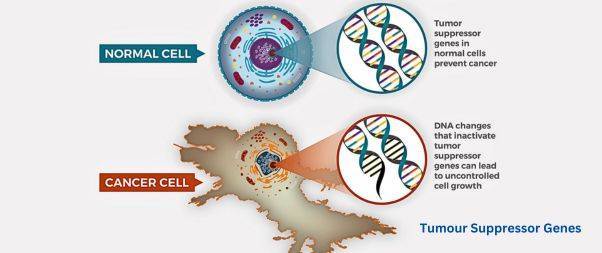
Normally, cells possess the ability to repair gene faults. In cases of severe damage, tumour suppressor genes step in to halt cell growth and division.
When mutations occur in tumour suppressor genes, cells lose their understanding of the instruction to stop growing. Consequently, the cell can spiral into uncontrolled multiplication, paving the way for cancer.
One well-known tumour suppressor gene is p53, which researchers have found to be damaged or absent in a majority of cancers.
DNA Repair Genes
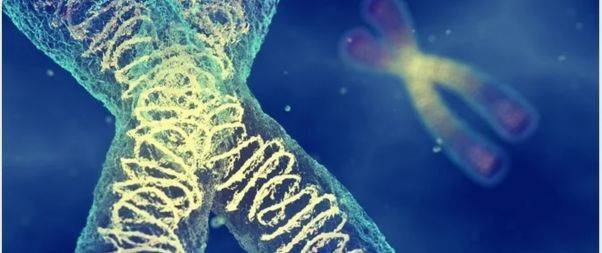
The DNA within our cells is under constant threat of damage. Fortunately, cells possess a variety of proteins that work diligently to repair this damaged DNA. Thanks to these proteins, most DNA damage is swiftly addressed.
However, when the damage affects a gene responsible for producing a DNA repair protein, the cell’s ability to repair itself becomes compromised. Consequently, errors accumulate in other genes over time, creating an environment conducive to the formation of cancer.
In certain types of cancer, such as bowel cancer, scientists have identified damaged DNA repair genes, shedding light on their role in the disease.
Self-Destruction Genes
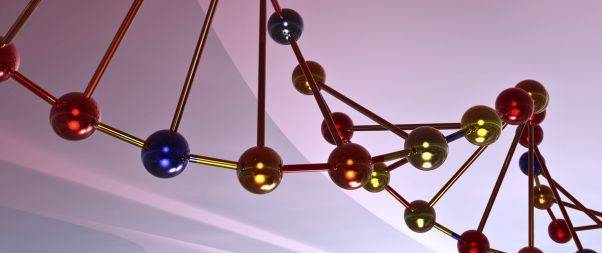
Within our cells, certain genes carry the crucial responsibility of instructing a cell to undergo self-destruction if it has reached an advanced age or sustained significant damage.
This process is known as apoptosis or programmed cell death, and it plays a vital role in maintaining cellular balance. When something goes awry within a cell, it is programmed to die to prevent the formation of cancer.
Apoptosis is an intricate and essential process that involves numerous genes and proteins working in harmony. However, if these genes become damaged, a malfunctioning cell may survive instead of undergoing self-destruction, leading to the development of cancer.
Inherited Genes and Cancer Risk: Genetic Susceptibility
Certain inherited genes can increase the risk of developing cancer. Mutations in genes like BRCA1, BRCA2, TP53, or APC can elevate susceptibility to specific types of cancer.
For instance, mutations in genes such as BRCA1 and BRCA2 are associated with a higher risk of breast, ovarian, and other cancers. Similarly, inherited mutations in genes like TP53 (Li-Fraumeni syndrome) or APC (familial adenomatous polyposis) can increase the risk of various cancers.
While inheriting these genes doesn’t guarantee cancer, it raises the likelihood. Genetic counseling and testing help assess risk and guide personalized prevention and screening strategies.
Why are People who have Poor DNA Repair Mechanisms at Greater Risk for Cancer Development?
People with poor DNA repair mechanisms are at greater risk for cancer development due to several reasons:
Accumulation of DNA Damage: DNA damage occurs naturally in our cells or as a result of exposure to environmental factors such as radiation or chemicals. Inefficient DNA repair mechanisms prevent the timely and accurate repair of this damage, leading to the accumulation of mutations in the DNA over time. These accumulated mutations can disrupt normal cellular processes and contribute to the development of cancer.
Genomic Instability: Defective DNA repair mechanisms can result in genomic instability, which refers to an increased tendency for DNA alterations and chromosomal abnormalities. Genomic instability creates a fertile ground for the accumulation of additional mutations and increases the probability of genetic alterations in genes involved in cell growth control and tumor suppression, promoting cancer development.
Impaired Tumor Suppression: DNA repair mechanisms also play a role in the activation of tumor suppressor genes, which are responsible for monitoring and regulating cell division. If DNA repair mechanisms are compromised, these tumor suppressor genes may not function properly, leading to uncontrolled cell growth and an increased risk of cancer.
Susceptibility to Carcinogens: Poor DNA repair capacity can make individuals more susceptible to the damaging effects of carcinogens, such as tobacco smoke or UV radiation. These carcinogens can induce DNA damage, and if the repair mechanisms are impaired, the accumulated damage is not effectively repaired, increasing the risk of cancer development.
Overall, defective DNA repair mechanisms increase the likelihood of DNA damage accumulation, genomic instability, impaired tumor suppression, and heightened susceptibility to carcinogens. These factors collectively contribute to an elevated risk of cancer development in individuals with poor DNA repair mechanisms.
Also Read

